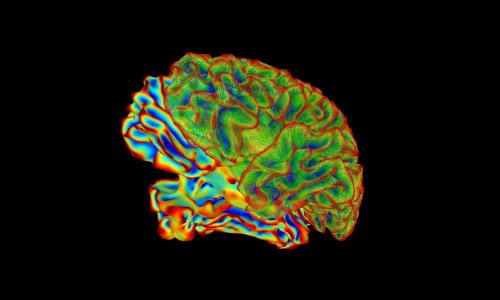News • Neurodegeneration
Will education save you from dementia? Don't count on it
Until now, neurologists were largely convinced that having a higher level of education would build some kind of protective barrier against neurodegenerative diseases like Alzheimer's. But a new study finds that education does not play a role in when the disease starts or how fast it progresses.
Source: Unsplash/Roman Mager
The study was published in the online issue of Neurology, the medical journal of the American Academy of Neurology. “The strengths of this analysis include that it was based on more participants who were observed for a longer period of time than previous analyses,” said study author Robert S. Wilson, PhD, of Rush University Medical Center in Chicago. “It’s possible that the contribution of education to cognitive reserve depends on other factors, such as life experiences or biological factors, but these results did not show a relationship between a higher level of education and a slower rate of decline of thinking and memory skills or a later onset of the accelerated decline that happens as dementia starts.”

For the study, researchers analyzed information from the Religious Orders Study, which involves older Catholic clergy members from across the United States, and the Rush Memory and Aging Project, which involves older people from the Chicago metropolitan area. Participants in both studies take part in annual evaluations and agree to a brain autopsy upon death. The 2,899 participants, who were 78 years old on average at the start of the study, had an average of 16.3 years of education. Participants were followed for an average of eight years. A total of 696 participants developed dementia during the study; 752 died and had the brain autopsy; and 405 developed dementia and died during the study and had the autopsy.
Researchers divided participants into three education level groups, 12 years or fewer, 13 to 16 years, and 17 or more years. The researchers did find an association between having a higher level of education and having higher thinking and memory skills at the start of the study, decades after formal education had ended. But they did not find an association between higher education and slower cognitive decline. Education level was also not related to how old people were when the disease started.
Late-life activities involving thinking and memory skills such as learning another language or other experiences such as social activities, cognitively demanding work and having a purpose in life may also play a role in cognitive reserve
Robert S. Wilson
The researchers also did not see the results shown in earlier studies that showed that once cognitive decline started in more educated people, it accelerated faster than in people with less education. They also did not replicate earlier findings that people with high levels of Alzheimer’s disease markers in their brains who had high levels of education did not decline as rapidly as people the same levels of disease markers in the brain who had lower levels of education. “This finding that education apparently contributes little to cognitive reserve is surprising given that education affects cognitive growth and changes in brain structure,” Wilson said. “But formal education typically ends decades before old age begins, so late-life activities involving thinking and memory skills such as learning another language or other experiences such as social activities, cognitively demanding work and having a purpose in life may also play a role in cognitive reserve than may be more important than remote experiences such as schooling.”
A limitation of the study is that participants had a relatively high level of education, so it is possible that effects previously seen on cognitive reserve due to education may have been primarily driven by variations at the lower end of the education level spectrum, Wilson said. “Of course, even if one declines at the same rate it is still better to start at a higher level of cognition,” Wilson added.
Source: American Academy of Neurology
07.02.2019











